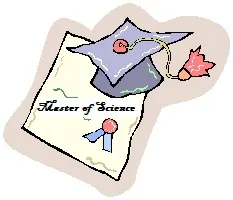Name: Elizabeth Grice, PhD
Job Title & Company: Assistant Professor of Dermatology, University of Pennsylvania
Location: Philadelphia, PA
How long you’ve been in your current job: 1 year, 8 months
Postdoc Advisor, IC: Julie Segre, NHGRI
What do you do as an Assistant Professor?
It’s varied. When I first started, I did a lot of stuff setting up my lab and hiring people. Now, that I’ve hired people and they’ve become accustomed to the lab and I’ve trained them, they are a lot more independent. So, now I spend a lot of my time writing grants and manuscripts. I have found that I spend a fair amount of time traveling and talking about my research with people at other universities or conferences.
What do you research?
We work on microbiome, especially related to skin health and disease. One area that we focus on is wound healing and how the microbiome influences wound healing. We recently published a paper in PNAS showing that an arm of the immune system called complement actually modulates the skin microbiome and vice versa. So, that was kind of cool to get my first big paper since my start in my lab.
What are the most important skills that you utilize in your current position?
I think the writing skills are really important as are the communication skills. Oral and written communication skills are key because a big part of your job is selling your research so that you can get funded and get publications. The other part, which I didn’t necessarily anticipate, is being able to manage people. Right now, I have six people in my lab and I am responsible for them and I have to be sure that they are doing their jobs. Being able to successfully manage a research program really depends on these two skills. Of course, on top of this, you need to have ideas and an excellent scientific background.
How did you develop your communication and management skills?
I wrote a K99 grant which helped a lot. I realized that this is what I wanted to do because I really enjoyed writing the grant and I did enjoy writing the manuscripts when I was a postdoc. This was one of my favorite parts. I didn’t enjoy the bench work as much as much as taking my ideas and putting them into a coherent story.
I took a grant writing class through NIHGRI and I also participated in Lori Conlan’s Management Boot Camp, which was really helpful. I also draw on a lot of advice from my colleagues at Penn and other professors that have labs. This can be especially helpful to get input on how to handle different personnel/management scenarios.
What is your favorite aspect of your current job?
I really like the flexibility and the freedom and the fact that I go to work every day and get to do exactly what I want to do. Of course I have deadlines and I have to write grants, but they are all things that I am interested in and I really like that. I love that I have a goal (up for tenure in five years). I have mentors who advise me along the way and my chair is very helpful, but no one tells me what to do – I am in charge of my own destiny and my own time. I also like collaborating with people. The research in my lab is highly multidisciplinary and I get to collaborate with unique people from different areas that I never thought I would get to work with. For example, for a proposal for the US Army, we are looking at what types of volatile organic compounds are produced from the skin microbiome and how those compounds affect the attractiveness of people to mosquitoes, which can cause diseases like malaria. So, although I never thought I would be doing this, it is fun because the team includes an organic chemist, a mosquito expert and a statistician. It is fun to draw on the expertise of other people.
What has been the hardest aspect about transitioning into this career?
The hardest part has been managing people and I am still grappling with my style and how I should do it. I often wonder if I should be more hands on, more hands off, all the while realizing that different people respond differently to different types of management. I never had people working for me before, so it has been something that I have had to get used to and I am still figuring it out. I actually think more senior professors are still figuring it out too – it is a challenge for all.
What was your job search like?
My job search was crazy and stressful. I applied to every place that had an opening that was within my range of interest and it also had to be somewhere my husband was willing to move. I didn’t apply anywhere where I wasn’t willing to move and I ended up interviewing at 12-13 places and the interview process is just grueling for each place. It is usually two days long; one day, you give a seminar and the next day you give a chalk talk. In between all of those, you are constantly meeting with people, even during your meals. I squeezed all of my interviews into a short time span of three months, so it was just really exhausting. I didn’t know how many interviews I was going to get or how many offers I was going to get; there is just no way of telling and I wanted to be sure I was going to get an offer eventually, so I just applied to a lot of places.
What are the most important soft skills needed for your position?
In a postdoc, you are so focused on getting papers out and getting your scientific skills together, it can be easy to forget that ultimately you are going to need to be able to hone your communication and people skills. I was really lucky because my postdoctoral advisor, Julie, got so many invitations to speak at different place and she wasn’t able to speak at all of them, so she would send me sometimes. That was really helpful because it not only helped me with my presentation skills, but also helped me to network and get my name out there. To get a job, you have to do a considerable amount of networking which I am not great at, but I know this was always stressed during seminars. If you do a lot of talks and posters, then people come to you and things seem to start falling into place. My mentor did a great job thinking about my career development and introducing me to people who might be important to know. If Julie hadn’t been so proactive and such a good mentor, I don’t think I would have been nearly as successful in my job search.
How did you prepare for the interview?
I did practice the chalk talk portion, which I think is really important because the chalk talk is really your plans for your research and what direction you are going to take. You can’t use slides, so you have to think about how you are going to communicate that and how you are going to sketch it out on the blackboard. Practice with people who have seen and judged these types of talks before.
Any last bits of advice?
Be prepared because it’s a hard path to go down unless you absolutely love what you do and love your research. You need to live and breathe your research because it is a lot of hours and it is a lot of work. Unless you are totally invested in it, it’s probably not going to work out, you probably won’t be happy.
This is not a field you go into for the pay, but remember you have the power of negotiation. I remember reading somewhere that only 7% of women negotiate their salary and when I read that, I was right in the middle of negotiation and I made sure to try to negotiate my salary and I felt ridiculous doing it because I thought “Well, that’s enough money, it’s more than I make now.” But you can always ask for more — whether it is space, equipment, money, salary, startup funds. I think it is important to negotiate, but then again, if you ask for a lot, they are going to expect more. Always be sure you are given the resources to do the best job that you can do. You need the resources to succeed.





